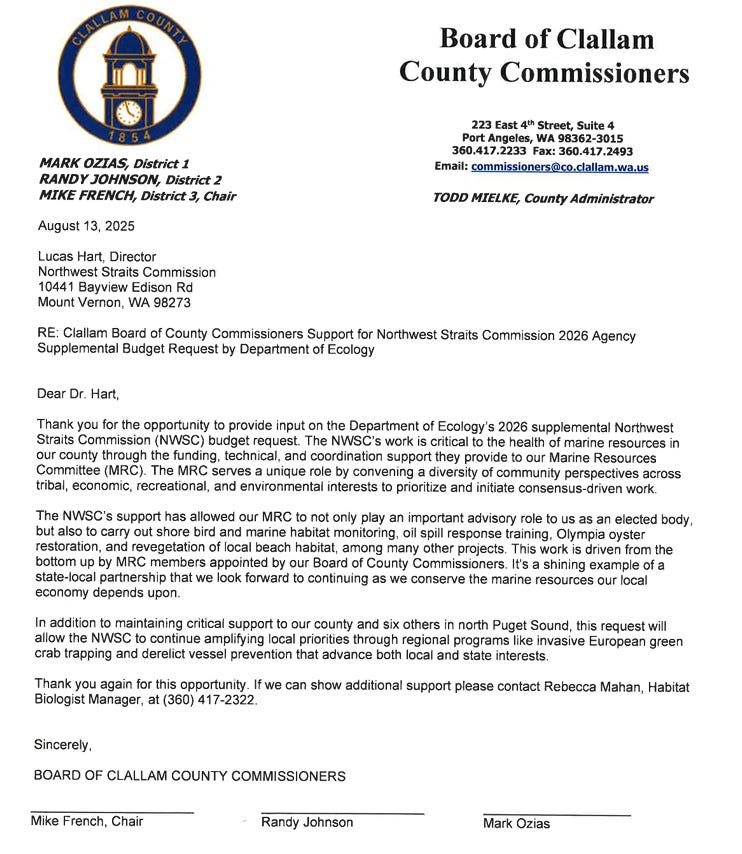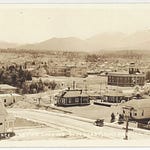Clallam County commissioners have ignored public questions for nearly a year—until now. With a tax increase on the ballot, they’re suddenly answering to the public. The growing equity gap between the residents footing the bill and the special interests shaping county policy behind closed doors is growing. When government only listens when it needs something, who’s really in charge?
Something remarkable happened at Tuesday’s regular Board of Commissioners meeting. Something that hasn’t happened in almost a year: the commissioners answered questions.
For years, the public was told that “public comment is for listening, not responding.” Questions were met with silence, or in some cases, outright dismissal. The last real dialogue between the commissioners and the public was nearly a year ago at a budget town hall. It was during that town hall that private citizen John Worthington revealed the board had approved a $369,000 contract they didn’t even know they had signed.
That moment should have sparked a shift toward transparency—but instead, the shutters came down. Emails were ignored. Town halls were deemed too resource-intensive. Questions about commissioners’ absences were met with, “That’s just not any of your business.” Concerns about rising taxes got a shrug: “You’ll have to figure that out all by yourself.” Inquiries about the commissioners manufacturing support for a culture tax were answered with, “Look it up in public records.”
So what changed?
On Monday afternoon, the commissioners voted to place a levy lid lift—a property tax increase—on the November ballot. And by Tuesday morning, they were taking questions. That’s not a coincidence.
For 22 months, the public has been asking for something simple: answers. But when the public wanted something, dialogue was unnecessary. There was no political upside in giving it.
Now that the commissioners want something from you—a yes vote—they’re ready to talk.
The equity gap
We talk a lot about equity these days. Here in Clallam County, equity isn’t just about race, gender, or income. It’s about whose voices are heard—and whose are ignored. When commissioners prioritize nonprofit consultants, government partners, and tribal lobbying efforts over regular residents, it creates a deficit of representational equity.
Consider the flood-prone 3 Crabs neighborhood, where residents are shelling out thousands in property damage after a County-Tribe project reengineered Meadowbrook Creek and removed a protective dike. Now they’re facing another wet winter with no fix in sight.
Even more alarming, the Marine Resources Committee (MRC)—a county advisory body—has recommended “retreat or removal” of roads and homes along Three Crabs Road. Translation? Residents may be forced off their land.
When asked about the MRC’s advice, the commissioners have offered no answers. No clarification. No commitment. Just silence. Meanwhile, a whole community is left to wonder if their homes are worth saving, or if the county has already decided they’re expendable.
Yet at the same time, the county is drafting a letter of support for the MRC in hopes of replacing lost federal funding with a new Department of Ecology grant. That’s right—our commissioners are bending over backward to preserve funding for a body that has openly suggested evicting taxpayers from their homes.
The MRC’s outreach efforts, while cloaked in terms like “Indigenous stewardship” and “co-management,” are not neutral. They are part of a tightly woven web of environmental NGOs, grant-funded consultants like Herrera Environmental, and programs like Shore Friendly—all of which are aligned with long-term shoreline “restoration” goals that often conflict with private property rights.
These groups speak the language of science and equity. But real equity means making space for all voices—including the people who actually live in the communities being “restored.”
The commissioners’ track record
The Board’s stated vision begins with this: “Putting the translated desires of our residents into action through effective communication.”
Not special interests. Not other government agencies. Residents.
And yet, time and again, the commissioners go to bat for everyone except the residents.
They issued a proclamation for “Dark Sky International” urging you to turn off your porch lights, while quietly attempting to give away Towne Road—a public right-of-way that’s existed for over a century—to a sovereign tribal government that doesn’t answer to Clallam County voters.
When the Sequim School District wanted to push a bond and levy, the commissioners backed it with an official resolution. Commissioner French even claimed the bond included interest—which it didn’t—understating the cost to voters by nearly $100 million.
When Olympic Medical Center wanted to double its levy, the commissioners endorsed that too—using scare tactics to suggest East Clallam would lose maternity and trauma care. Voters passed it. They’re paying twice as much. And the hospital is still teetering on collapse.
Time and again, this board has chosen to advocate for other institutions—school districts, hospitals, nonprofit coalitions, tribal governments—while ignoring the actual residents of Clallam County.
Now they need you
But now, with a tax hike on the line, they’re ready to talk. Now, suddenly, dialogue is back on the table. Not because the voters asked for it. Not because transparency is their mandate. But because they want something from you.
This isn’t just about taxes. It’s about who counts. Who gets a seat at the table. And who gets silence.
When government only listens when it needs something, it’s not leadership—it’s manipulation.
Real equity means accountability to the people who pay the bills. Anything less is just politics.
Last Equitable Wednesday, readers were asked if Clallam County officials should be required to respond to federal requests for information when land is proposed for trust status—regardless of whether they support or oppose the transfer. Of 230 votes:
100% said, “Yes, transparency is important”
0% said, “No, it’s not the county’s role”
0% said, “Unsure / Need more information”












